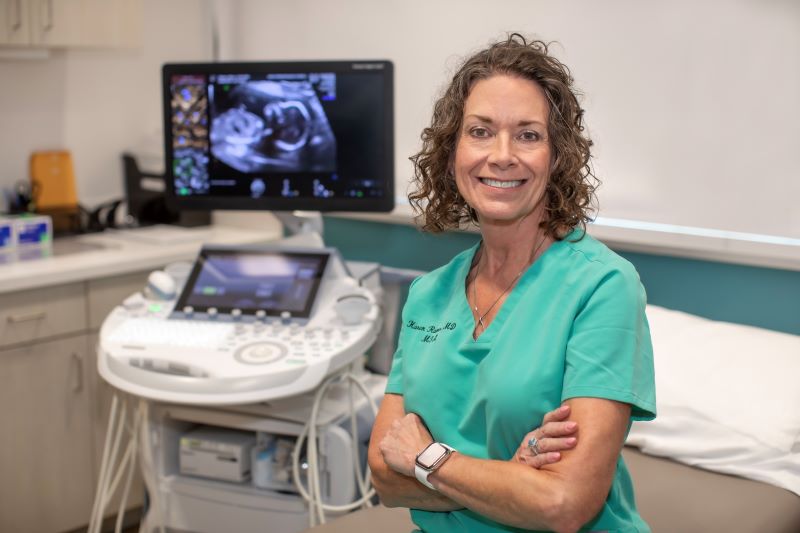Doctor Shares Own Experiences as a Mom to Help High-Risk Expectant Mothers
A high-risk pregnancy can be stressful, but Karen Raimer, M.D., has helped calm nerves and provide answers for expectant mothers for more than 30 years. As a perinatologist at Johns Hopkins All Children’s, Raimer serves as a key leader for Johns Hopkins All Children’s maternal-fetal medicine team. Most days she works in the clinic setting, consulting with patients and reviewing ultrasounds.
“I enjoy chatting with them about their history and their ultrasound findings,” says Raimer. “I try to relate with them on a personal basis as though I’m just having a chat with a friend.”

Looking for Things to Do in Tampa Bay?
>>This Week’s Favorite Events
>> Nearby U Pick Farms
>> 40+ Free Things to Do with Kids
As a mother of eight children of her own (seven biological and one adopted), Raimer understands the challenges of pregnancy and motherhood.
“I have had many of the complications my patients have had,” says Raimer. “I have had preterm labor, twins, preeclampsia, a placenta previa and a 30-week preemie who spent time in the NICU. I spent 10 weeks on bedrest in the hospital … so when patients know that I’ve done it and I can offer some suggestions on coping, they are very appreciative.”
There are certain measures Raimer recommends to increase the chances of a healthy pregnancy, including:
- Taking folic acid to reduce chances of brain and spinal cord defects
- Taking prenatal vitamins
- Making sure your vaccines are up to date
- Getting adequate exercise before/during pregnancy
- Drinking plenty of water
- Consuming healthy foods (protein, fruits, vegetables and whole grains)
- Avoiding smoking
- Avoiding alcoholic drinks
- Avoiding foods high in mercury, raw fish/shellfish/meat and unpasteurized milk/cheese
For those who are thinking about becoming pregnant, Raimer suggests first meeting with a maternal fetal medicine specialist if you have a pre-existing condition, such as diabetes or hypertension. Also, it is a good idea to be screened for genetic risks, such as cystic fibrosis, spinal muscular atrophy or sickle cell disease, especially if you know of any family history. While these conditions can affect pregnancy or increase complications, providers like Raimer specialize in caring for high-risk expectant mothers and coming up with a plan of action during pregnancy. Maternal-fetal medicine specialists are crucial to keep you and your baby as a healthy as possible no matter the outcome.
“It is extremely challenging to tell a family they have lost a pregnancy or that they will have complications through pregnancy or birth,” adds Raimer. “However, it is especially rewarding when I am able to see that same mom again and place a health baby in her arms. From there, I always advise families to enjoy your babies and cherish every moment because they grow up fast!”
As a key member of the maternal-fetal medicine team, Dr. Karen Raimer provides care for many expectant mothers whose infants may require care in the hospital’s neonatal ICU or cardiovascular ICU, as well as surgery after delivery. She joined All Children’s Perinatology Specialists in 1991 after completing her fellowship at University of Miami. Dr. Raimer is a graduate of the Louisiana State University School of Medicine, New Orleans. She completed a residency in obstetrics/gynecology at the Ochsner Foundation Hospital in New Orleans, where she served as chief resident. Following a fellowship in perinatology at the University of Miami, in 1991 Dr. Raimer joined Maternal Fetal Medicine Associates in St. Petersburg, Florida, and is the Regional Perinatal Intensive Care Center director for Maternal Fetal Medicine at Bayfront Health St. Petersburg. Dr. Raimer serves as an examiner for the American Board of Obstetrics & Gynecology.
*Presented by Johns Hopkins All Children’s Hospital | Originally published in May 2023 of Tampa Bay Parenting Magazine.





